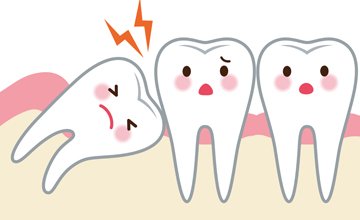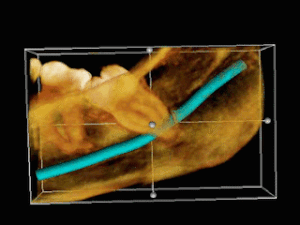How Wisdom Teeth Infection can Save You Time, Stress, and Money.
Overview Wisdom tooth extraction is an effective surgical procedure to remove one or more wisdom teeth that the four permanent adult teeth located on bottom and the top at the corners of the mouth. When a wisdom tooth does not have space to increase (impacted wisdom tooth), resulting in pain, illness or other dental issues, you'll probably have to have it pulled.

To prevent possible future difficulties, a few dentists and oral surgeons advocate wisdom tooth extraction even if affected teeth are not currently causing problems. Why it's done Wisdom teeth, or third molars, would be the final permanent teeth to appear (erupt) from the moutharea. These teeth usually appear between the ages of 17 and 25.
For many others, wisdom teeth cause no problems and erupt normally just as their molars failed. Wisdom teeth teeth that don't have enough space are developed by men and women. Wisdom teeth can erupt in any way or only partly. An impacted wisdom tooth can: Grow in an angle toward the next tooth (second molar) Grow in an angle toward the back of the mouth Grow at a ideal angle to the other teeth, like the tooth enamel is"lying down" within the jawbone Grow directly up or down like other teeth however stay trapped within the jawbone Issues with impacted wisdom teeth You will probably want your affected wisdom tooth pulled if it contributes to problems like: Infection Trapping debris and food supporting the wisdom tooth Infection or gum disease (periodontal disease) Tooth decay at a partially erupted wisdom tooth Damage into a nearby tooth or surrounding bone growth of a fluid-filled sac (cyst) round the wisdom tooth difficulties with dental treatments to whiten different teeth Preventing future dental problems Dental experts disagree about the value of expressing impacted wisdom teeth which aren't causing difficulties (asymptomatic).

Here's the rationale for extraction. When there isn't enough room for your tooth it is often tough to access to it and clean it. Serious complications with teeth happen less frequently in younger adults. Difficulty may be experienced by older adults with complications and surgery after operation.
However, a surgical approach that involves making an incision in the gum tissue and removing bone is occasionally required by removal of impacted wisdom teeth. Rarely, complications may include: Painful sterile socket, or vulnerability of bone once the post-surgical blood clot has been lost from the site of the surgical wound (socket) Infection at the socket out of germs or even trapped food particles harm to nearby useful source teeth, nerves, jawbone or sinuses How you prepare Your physician can do the procedure at the workplace.
Our Wisdom Teeth Removal Statements
In addition to making the area with local anesthetic, your physician may indicate sedation to enable you to be more comfortable throughout the process. Questions to ask Questions you may choose to ask your dentist or oral surgeon include: The amount of wisdom teeth will need to be removed what sort of anesthesia will I get How complicated do you expect the process to be How long is the procedure likely to survive Have the impacted wisdom teeth caused harm to other teeth Will there why not try these out be a risk that I might have nerve damage What other dental treatments may I need at a later date How long does it take to completely cure and return to regular activity Preparing for operation A wisdom tooth extraction is nearly always done as an outpatient procedure.
You will receive directions from the dental or hospital clinic staff on what to do prior to the operation and also the day of your scheduled surgery. Ask the following questions: Can I want to make arrangements for somebody to drive me home after the process When do I need to arrive at the dental practice or hospital Do I need to avoid eating food or drinking fluids or equally (fast) If yes, when can I begin Can I choose my prescription medications before the surgery If so, how long prior to the surgery can I take a dose If I avoid any nonprescription drugs before the operation what you could anticipate During the procedure Your dentist or oral surgeon may use one of three different types of anesthesia, based on the expected complexity of this wisdom tooth check that extraction and your comfort level.

Your dentist or dental surgeon simplifies anesthesia with a couple of injections close to the site of every extraction. Your surgeon or dentist will employ a material to your own gums, before you receive an injection. You are awake during tooth extraction. You should not experience pain, Even though you'll feel a little pressure and motion.

Sedation anesthesia Enhance your comprehension during the procedure. You do not feel some pain and will have restricted memory of this process. You get local anesthesia to numb your teeth. General anesthesia. In particular situations, you could be offered anesthesia.